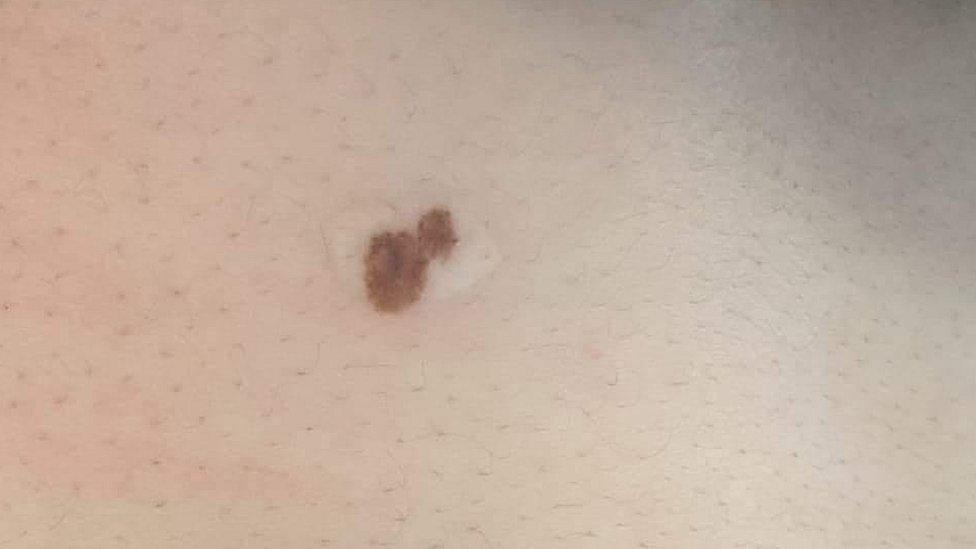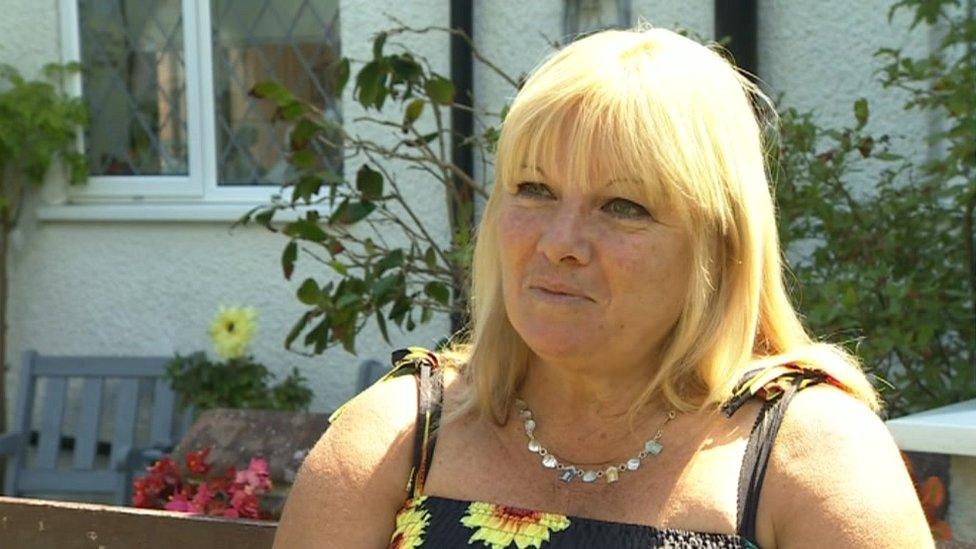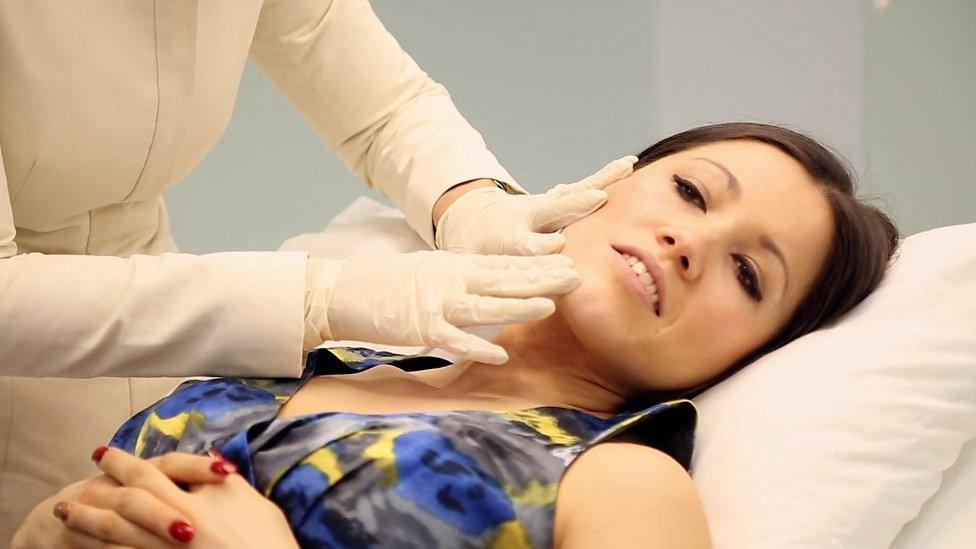More than 16,000 sign 'Zoe's Law' mole-testing petition
- Published

Zoe Panayi had been told two years before that the mole was believed to be harmless
More than 16,000 people have signed a petition set up by an Isle of Wight mother who is calling for mandatory testing of removed moles and skin tags.
Eileen Punter's daughter, Zoe Panayi, died of melanoma cancer, which was traced back to a mole that doctors allegedly claimed was not harmful.
The 26-year-old had the mole removed by a cosmetic clinic instead, but it grew back and turned out to be malignant.
Ms Punter wants to set up Zoe's Law to ensure all removed moles are tested.
Her call is supported by the British Association of Dermatologists, which said it recommended all skin lesions were tested, even if removed for cosmetic reasons.
Currently, there is no guidance on cosmetic mole removals, according to The National Institute for Health and Care Excellence (Nice).

Ms Panayi's mole had been shaved off but had started growing back
Ms Panayi, a mother of two and a radiography assistant at St Mary's Hospital on the island, had been to see a GP two years ago about the mole that was "bobbly" and "really itchy".
Ms Punter, who had accompanied her daughter, said: "The doctor just looked at it and said 'I'm not worried, it looks like a skin tag'."
They were told the same by another GP a year later, and were advised to have the mole removed at a private cosmetic clinic.
In early April, Ms Punter said she received a call from her daughter late at night "screaming in pain, saying 'it's so bad now'".
Soon afterwards she was diagnosed with terminal cancer.

Eileen Punter is calling for mandatory testing of all removed moles and skin tags
Ms Punter said: "We were just gobsmacked, we couldn't believe it.
"I keep thinking that two years ago I should have chased everyone up. I made her go back but I kind of believed the doctors."
The Punter family has started a petition for Zoe's Law in her memory - calling for the testing of all removed moles to be made standard practice at private clinics.
The family needs 100,000 signatures for Zoe's Law to be discussed in Parliament.
According to Cancer Research UK, 86% of melanoma cases are preventable, but despite this there are more than 2,400 deaths from melanoma every year.
Dr Tanya Bleiker, president of the British Association of Dermatologists, said it recommended "that all skin lesions, even if removed for cosmetic reasons, should be sent for (histopathological) testing to confirm that they are benign".
She added: "Some melanomas can be difficult to diagnose and not testing carries a risk of skin cancers being missed, leading to delays in diagnosis."
The NHS Isle of Wight Clinical Commissioning Group said it could not comment on individual cases but that it was working "to get more information and fully understand the situation".
It added that anyone concerned about a new or existing mole should visit the NHS website or contact their GP.
- Published29 July 2015

- Published14 August 2016

- Published15 June 2018
